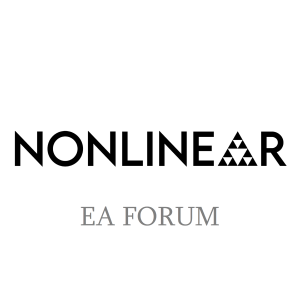
The Nonlinear Library: EA Forum
Education
![EA - Social science research we'd like to see on global health and wellbeing [Open Philanthropy] by Aaron Gertler](https://pbcdn1.podbean.com/imglogo/dir-logo/2453821/2453821_300x300.png)
EA - Social science research we'd like to see on global health and wellbeing [Open Philanthropy] by Aaron Gertler
 2024-02-15
2024-02-15
Welcome to The Nonlinear Library, where we use Text-to-Speech software to convert the best writing from the Rationalist and EA communities into audio. This is: Social science research we'd like to see on global health and wellbeing [Open Philanthropy], published by Aaron Gertler on February 15, 2024 on The Effective Altruism Forum.Open Philanthropy strives to help others as much as we can with the resources available to us. To find the best opportunities to help others, we rely heavily on scientific and social scientific research.In some cases, we would find it helpful to have more research in order to evaluate a particular grant or cause area. Below, we've listed a set of social scientific questions for which we are actively seeking more evidence.[1] We believe the answers to these questions have the potential to impact our grantmaking. (See also our list ofresearch topics for animal welfare.)If you know of any research that touches on these questions, we would welcome hearing from you. At this point, we are not actively making grants to further investigate these questions. It is possible we may do so in the future, though, so if you plan to research any of these, pleaseemail us.Land Use ReformOpen Philanthropy has been making grants inland use reform since 2015. We believe that more permissive permitting and policy will encourage economic growth and allow people to access higher-paying jobs. However, we have a lot of uncertainty about which laws or policies would be most impactful (orneglected/tractable relative to their impact) on housing production.What are the legal changes that appear to spur the most housing? E.g. can we estimate the effects of removing parking mandates on housing production? How do those compare to the effects of higherFAR or more allowable units?Why we care: We think that permitting speed might be an important category to target, but have high uncertainty about this.What we know: There are a number of different studies of the effects of changes in zoning/land use laws (e.g. see a summaryhere in Appendix A), but we're not aware of studies that attempt to disentangle any specific changes or rank their importance. We suspect that talking to advocates (e.g. CA YIMBY) would be useful as a starting point.Ideas for studying this: It seems unlikely that there have been "clean" changes that only affected a single part of the construction process, but from talking to advocates, it seems plausible that it would be possible to identify changes to zoning codes that primarily affect one parameter more than others. It also seems plausible that this is a topic where a systematic review, combining evidence from many other studies, would be unusually valuable.What is the elasticity of construction with regards to factors like "the likelihood of acquiring permission to build" or "the length of an average permitting delay"?Why we care: We are highly uncertain about how to best encourage more construction, and thus about where to target our grants.What we know: there have been many recent changes to permitting requirements, such as the California ADU law thatrequires cities to respond to permit requests within 60 days and anew law in Florida that requires cities to respond to permit requests quickly or return permitting fees. Thisblog post by Dan Bertolet at Sightline predates those changes, but is the best summary we've seen on the impacts of permitting requirements.Ideas for studying this: one might compare projects that fall right below or above thresholds for permitting review (e.g. SEPA thresholds in Washington state), and try to understand how much extra delay projects faced as a result of qualifying for review. It could also be valuable to analyze the effects of the Florida law (e.g. a difference-in-difference design looking at housing construction in places that had long delays vs. short delays prior to the law passing).Does the value of new housing (in terms of individual earnings gains ...
More Episodes
Create your
podcast in
minutes
- Full-featured podcast site
- Unlimited storage and bandwidth
- Comprehensive podcast stats
- Distribute to Apple Podcasts, Spotify, and more
- Make money with your podcast
It is Free
- Privacy Policy
- Cookie Policy
- Terms of Use
- Consent Preferences
- Copyright © 2015-2024 Podbean.com





